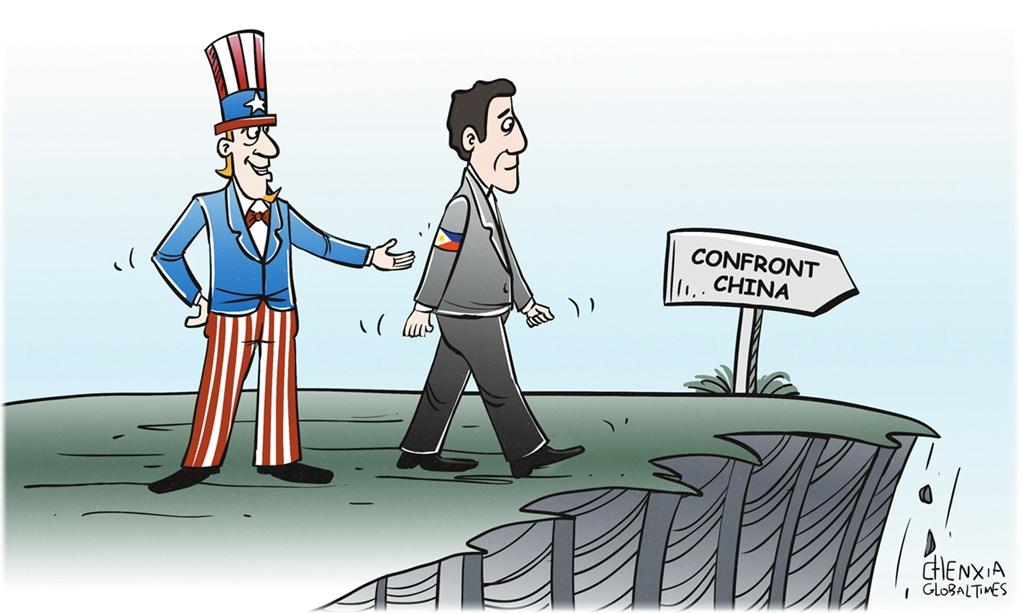‘Forever’ deployment of US Typhon missile system a poison to Philippines, region

Illustration: Chen Xia/GT
US and Philippine security officials have agreed to keep the mid-range Typhon missile system, a land-based weapon capable of firing the Standard Missile-6 and the Tomahawk Land Attack Missile, in northern Philippines indefinitely to boost deterrence, according to an AP report on Wednesday, citing two Philippine officials. Philippine military chief Gen. Romeo Brawner Jr was quoted as saying he wants US missiles in his country "forever."
Tomahawk missiles can travel over 1,000 miles (1,600 kilometers), which could place China within their target range. Obviously, the "forever" deployment of the Typhon system aims at China, experts said, as the US views China as its main competitor in the region and the Philippines keeps flaring up its tensions with China.
Dai Fan, director of the Center for Philippine Studies at Jinan University in South China's Guangdong Province, told the Global Times that the Typhon system may have a certain deterrence effect against China in small-scale conflicts, however in a larger-scale conflict, its deterrent effect would be very limited against a major military power like China.
Different from its predecessor, the current Philippine administration has demonstrated a tough stance and position toward China on the South China Sea issue through a series of provocations. Therefore, its primary concern is how to gain as much support as possible from its "trusted" ally, the US, rather than how much sovereignty and independence it may have to compromise, or the stability and peace of the region.
"Relying on US' deterrence to gain an upper hand over China in the South China Sea issue is a short-sighted and narrow-minded move by the Philippines," said Dai, noting that the Philippines lacks the ability to think strategically.
The Philippines is situated next to a major power, but adopts a hostile policy toward this major power, pinning its hopes on an external major power to confront its neighbor and "defend" itself. "That's why it has become a tool exploited by the external power to intensify geopolitical competition in the region. In the end, it will end up putting its fate into the hands of the external power, resulting in a loss of its right to self-determination," warned Dai.
Right now, the Philippines believes the US is offering it sweets, but what the US actually provides is toxic, poisoning the Philippines' relations with China and other regional countries as well as undermining regional peace.
In fact, the US is using the Philippines to advance its anti-China agenda in the Indo-Pacific and facilitate its Indo-Pacific Strategy. An article in Asia Times on Thursday entitled "US points Typhon at China from Philippines" bluntly pointed out that "this deployment is part of broader US efforts to strengthen its military posture in the Indo-Pacific."
Sun Xihui, an associate research fellow with the National Institute of International Strategy at the Chinese Academy of Social Sciences, told the Global Times that by deploying the Typhon missile system, the US aims to deter China while strengthening its military presence in areas surrounding the country. Additionally, this deployment may embolden and incite its allies to provoke China and foster bloc confrontation in the region. Why is there a rush in the Philippines to sacrifice its own interests in order to serve US goals?
University of Philippines Professor Roland Simbulan, in a previous interview with the Global Times, noted that depending on a foreign power to take care of the Philippines' external defense makes it vulnerable. The Philippine government should heed these rational voices, abandon unrealistic faith in the US, and think twice before acting to turn the country into "cannon fodder" for conflict.